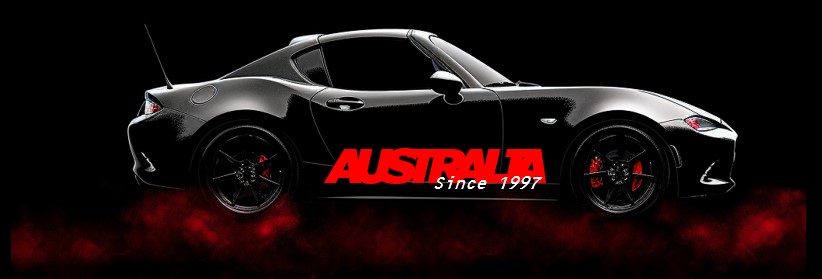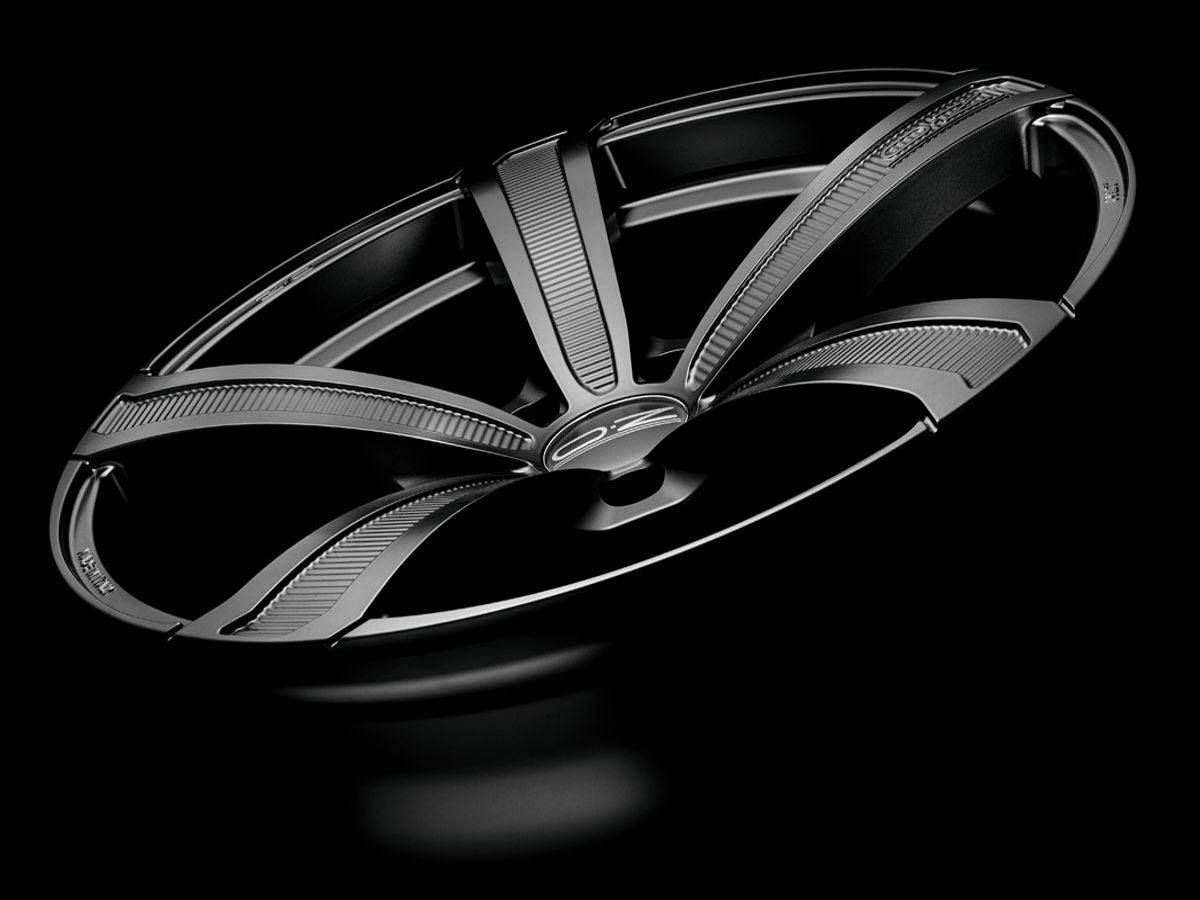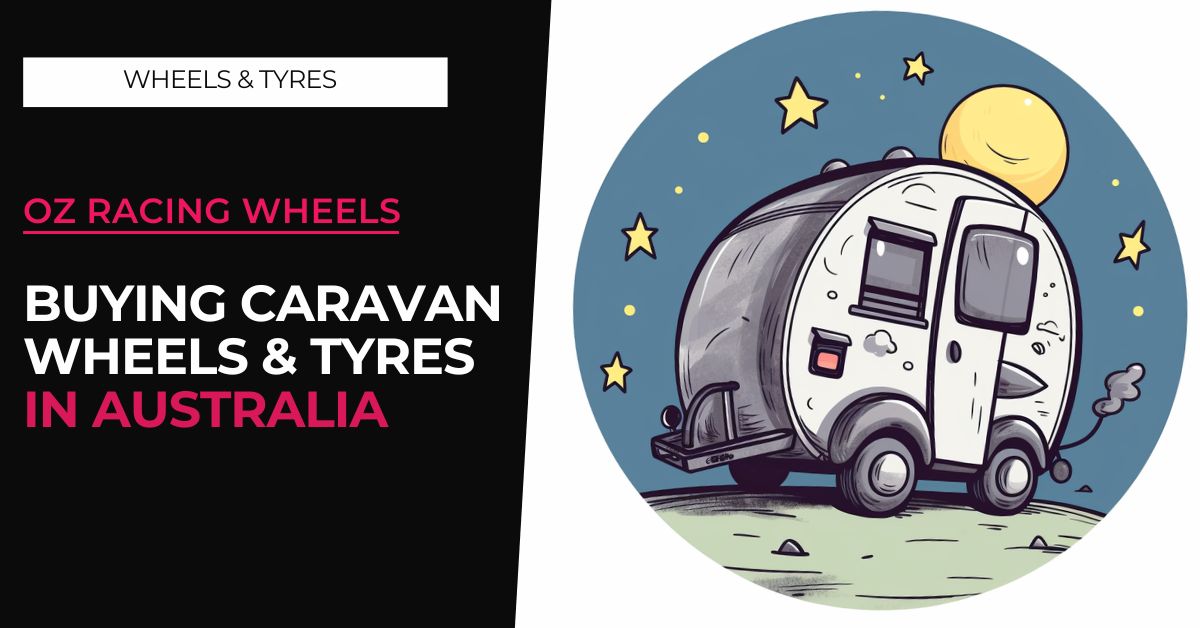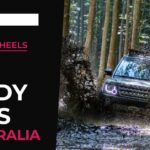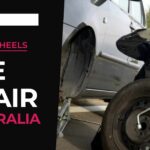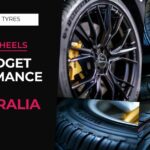When buying caravan wheels and tyres there are several important factors to consider in regards to safety, compatibility, and performance.
If you’re looking to upgrade the wheels you can choose steel wheels or alloy rims, but it is recommended you stick to the same size as your current caravan wheels.
We’ll cover the numerous aspects of buying tyres and wheels for your caravan in this guide, but don’t forget to read our how to on getting a real discount on tyres in Australia.
With that brief out of the way, here’s what we’ll discuss in this guide to caravan wheels and tyres:
Caravans on Aussie Roads (and Off-Road)
Your biggest consideration is what you use your caravan for.
If you plan to cover endless clicks on corrugated roads, or your 4×4 caravan on trailer will frequently hit dirt and dust, then you’ll have to pay more on tyres whether you like it or not. Wheels on the other hand don’t need to cost the earth – steelies for example – although a nice set of OZ Racing rims will really set your caravan apart from the rest!
Size and Specifications
Your easiest option is to match the size and specifications of the existing wheels and tyres on your caravan. Check the sidewall of the tyres for information on size, load capacity, and speed rating, and use these on a website like Tyroola to get a really good idea of cost of tyres and fitting.
When it comes to buying new wheels for your caravan you must verify the bolt pattern, PCD (Pitch Circle Diameter), center bore, and offset.
If this sounds complicated to you then no worries, here’s some examples based on common caravans in Australia:
Example 1:
- Bolt Pattern: 5 x 114.3
- PCD: 114.3 mm
- Center Bore: 67.1 mm
- Offset: +35 mm
Example 2:
- Bolt Pattern: 4 x 100
- PCD: 100 mm
- Center Bore: 56.1 mm
- Offset: +45 mm
Any wheel shop will know exactly what you need, but if you’re buying wheels online or second hand make sure (1) the centre bore, PCD, and bolt pattern match your hub, and the offset is within a reasonable tolerance.
Load Capacity
Consider the load capacity of the tyres.
The load capacity should be sufficient to support the weight of your caravan when fully loaded, so not the unladen weight. The load rating should meet or exceed the caravan’s Gross Vehicle Weight Rating (GVWR).
Speed Rating
Most tyres sold in Australia will have a speed rating more than adequate for your caravan, and I’m sure you won’t be hooking it up to your V12 Aston Martin.
Nevertheless, all tyres have a speed rating, and you can use this handy chart to make sure it’s suitable for the speeds you intend to tow your caravan:
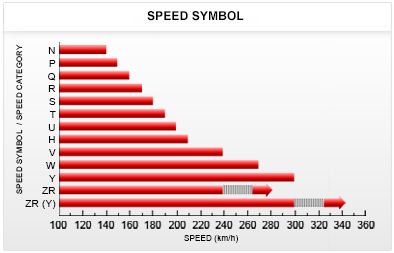
You see, the speed rating isn’t much of a problem for a caravan, but keep in mind better rated tyres come with additional benefits such as traction and durability.
Terrain and Climate
Consider the type of terrain and climate you’ll be traveling in. Are you planning to take your caravan on 300km corrugated roads, or plain old tarmac?
Different tyres are designed for various conditions, such as highway use, off-road, or all-season performance. Choose a tyre which suits your specific needs.
Ply Rating
The ply rating indicates the number of layers in the tyre construction. A higher ply rating often indicates increased strength and durability.
If you’re planning a long trip around Australia, especially on occasional dirt roads (which experience has taught me is impossible to avoid), then you may consider a higher ply rating to hopefully prevent middle-of-nowhere blow-outs.
Tyre Pressure Monitoring System (TPMS)
Some modern caravans and vehicles are equipped with a TPMS – tyre pressure monitoring system. This is similar to many newer models of car, and will cause a warning on your dash which looks a bit like a jellyfish or angry Pac-Man:
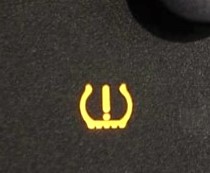
Although having a TPMS offers clear benefits, you will need to ensure the new wheels and tyres you buy for your caravan are compatible with it.
Wheel Material and Finish
Choose wheels made from durable materials suitable for the conditions you’ll encounter. Consider the finish for aesthetics and resistance to corrosion.
Generally most wheels will do the job, whether steelies or alloys, but you may find cheaper wheels can and do break. Many caravan owners report wheels cracking if you have the misfortune of hitting a nasty pot hole, kerb, or take your caravan off-road.
Budget
Determine your budget for wheels and tyres.
While it’s essential to prioritise safety and performance, there are various options available at different price points. More expensive doesn’t always mean better, and steelies are a good example of a cheap yet durable wheel (you’re not paying for bling factor).
When it comes to buying tyres for your caravan, most people overpay unnecessarily for tyres rated far too high for their needs. If you don’t want to be one of those people, read our guide on how to get a real discount on tyres.
Manufacturer Recommendations
If in doubt, refer to your caravan manufacturer’s recommendations for wheels and tyres. This information is often available in the owner’s manual or through the manufacturer’s customer support. Usually a quick search on the caravan manufacturer’s website will give you this information.
Installation and Maintenance
I don’t want to teach you to suck eggs, but if you’re installing wheels (or tyres) to your caravan at home, then make sure they’re installed properly and bolts are tightened to the correct torque.
You don’t want your caravan to be heading in one direction, and a wheel spinning off in another direction (this happened to an old colleague of mine).
Maintenance and regular inspections are a habit you must get yourself into. We don’t use our caravans daily, so it’s easy to set off on a camping trip with slightly deflated and dangerous tyres.
Get in the habit of testing tyre pressure before any trips. A 4WD tyre compressor is a very sensible investment, especially if you go on long trips in rural Australia.
Getting a tyre shop to periodically check your tyres and alignment is a good idea to ensure optimum performance and safety, as well as even tyre wear.
Lastly, keep in mind tyres do age over time. With our road cars this is rarely a problem, but it’s much more of a problem when we have a caravan sitting on our driveways for long periods of time.


